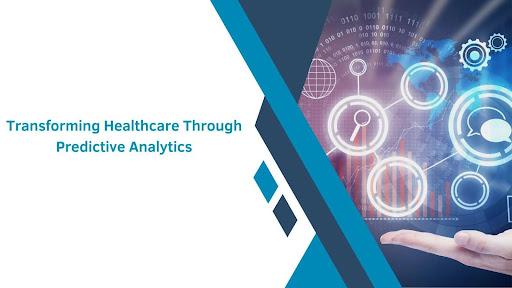Transforming Healthcare Through Predictive Analytics
In today’s rapidly advancing digital landscape, Santhosh Kumar Pendyalaa trailblazing researcher in healthcare data analytics, examines the transformative impact of predictive analytics on patient outcomes and clinical practices. With deep expertise in artificial intelligence and machine learning, innovative strategies are introduced to optimize clinical decision-making, improve treatment precision, streamline workflows, and enhance resource allocation. The focus is on leveraging advanced analytics to redefine healthcare delivery, fostering a more patient-centric, efficient, and data-driven approach to modern medicine.
The Power of Integrated Data Sources
Predictive analytics thrives on diverse data sources, integrating electronic health records (EHRs), wearable technology, genomic data, and patient-reported outcomes. These interconnected systems provide a comprehensive view of patient health, enabling personalized care and timely interventions. Advances in EHR capabilities, such as natural language processing, have dramatically improved data accessibility and reduced documentation time, supporting better clinical decision-making.
Innovations in Machine Learning Applications
Machine learning algorithms, including decision trees and neural networks, have transformed predictive modeling in healthcare. These tools are now capable of analyzing vast amounts of patient data with unparalleled accuracy. For example, deep learning models process millions of clinical variables in real time, identifying disease patterns and optimizing treatment plans. This innovation ensures that healthcare systems can offer precision medicine tailored to individual patient needs.
Enhancing Chronic Disease Management
Predictive analytics plays a pivotal role in managing chronic conditions. By monitoring key health metrics, predictive models identify risks and enable proactive interventions. This approach has significantly reduced hospitalizations and improved patient quality of life. Chronic disease management programs utilizing advanced analytics report substantial reductions in emergency visits and better long-term health outcomes for patients.
Optimizing Resource Allocation
Efficient resource management is another critical advantage of predictive analytics. Healthcare facilities benefit from algorithms that optimize staff deployment, equipment usage, and supply chains. Predictive maintenance systems further enhance operational efficiency by minimizing downtime and extending the lifecycle of medical devices, translating to substantial cost savings.
Addressing Data Privacy and Interoperability Challenges
While the benefits of predictive analytics are profound, implementing these systems comes with challenges. Ensuring data privacy and system interoperability are paramount. Advanced security frameworks and standardized protocols mitigate risks while fostering seamless integration across diverse healthcare platforms. These measures are essential for maintaining trust and compliance in an increasingly data-driven environment.
Driving the Future of Personalized Medicine
The integration of genomic data into predictive analytics marks a significant milestone in personalized medicine. By analyzing genetic information, healthcare providers can predict treatment responses and reduce adverse reactions. This innovation is particularly transformative in oncology, where precision medicine improves treatment efficacy and patient outcomes.
Economic and Business Impacts
Predictive analytics offers significant economic advantages by streamlining healthcare operations and reducing costs. Organizations leveraging these technologies report a notable decrease in administrative overheads, cutting time-consuming manual processes through automation. Shorter patient stays, enabled by early diagnosis and optimized treatments, translate into reduced resource utilization and cost savings. Enhanced operational efficiencies, such as improved staff allocation and equipment usage, drive productivity while maintaining high standards of care. These advancements not only elevate patient outcomes but also empower healthcare providers to excel in an increasingly competitive industry landscape.
In conclusion, Santhosh Kumar Pendyala‘s groundbreaking insights shed light on the immense transformative potential of predictive analytics in healthcare. By harnessing cutting-edge technologies like artificial intelligence and machine learning, healthcare systems can revolutionize patient care with personalized, data-driven approaches that are both proactive and equitable. This evolution not only enhances clinical outcomes but also optimizes operational efficiencies, addressing complex challenges with innovative solutions. As predictive analytics continues to evolve, its significance in shaping the future of medicine becomes a cornerstone for achieving global health improvements and sustainability.


Comments are closed.